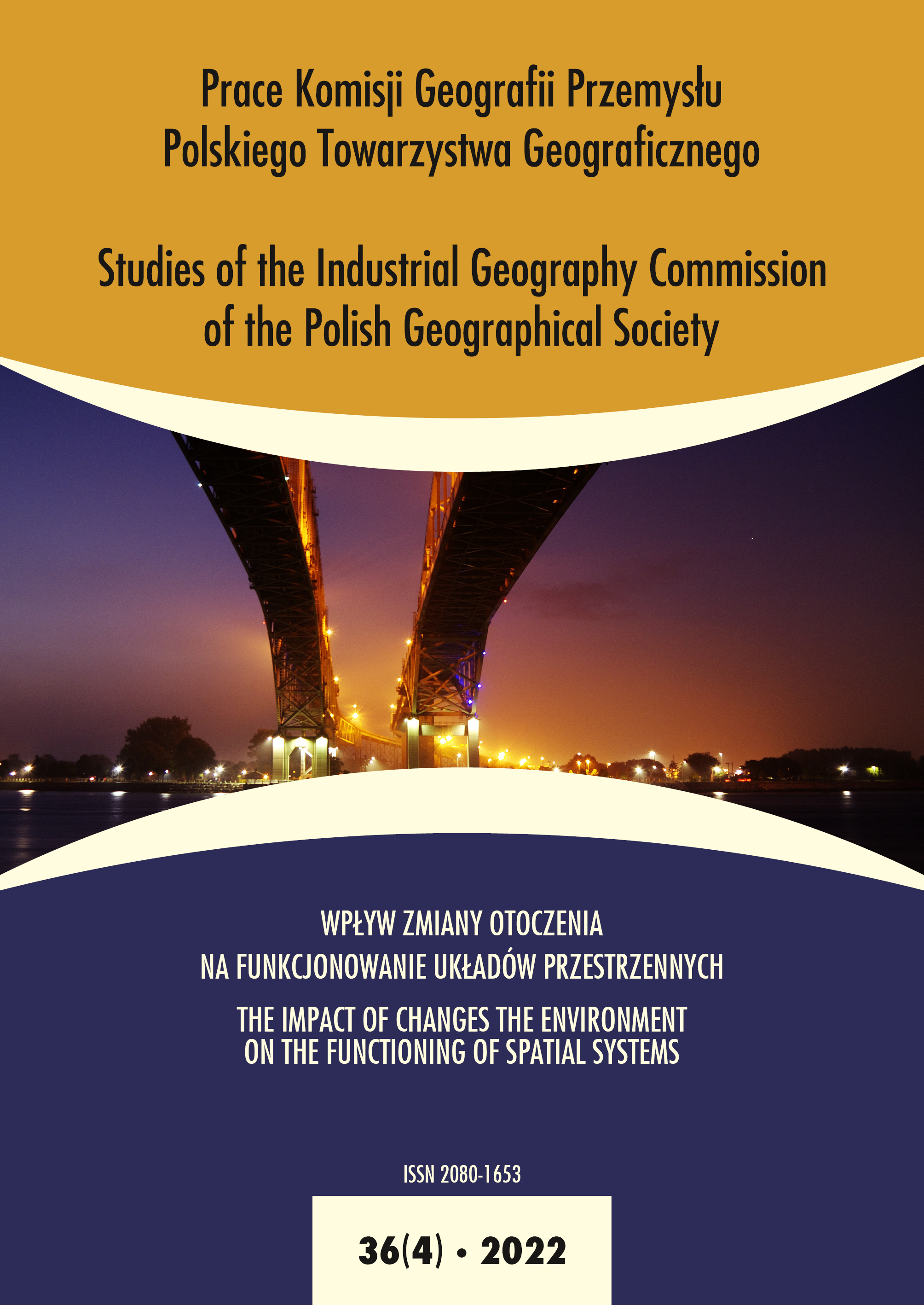Stages of interaction of China and the Sverdlovsk region (Russia) under conditions of transformation in economic development models
DOI:
https://doi.org/10.24917/20801653.364.7Abstrakt
The authors of the article observe the evolution of the economic cooperation between the Sverdlovsk region in Russia and the People’s Republic of China (PRC). In the research two major stages of the collaboration between two countries can be traced clearly: “the nomenklatura partnership” in the second half of the 20th century and “the market pragmatism” at the beginning of the 21st century. The aim of the paper is to investigate the ways of integration of the Sverdlovsk area as an old industrial region in the system of economic interaction with the People’s Republic of China, and define the reasons and factors for the dominant position of PRC in the foreign trade and economy of the Sverdlovsk region and the Urals, in general. The novelty of the study is to identify the particularity of the economic relations between one of the regions of the Russian Federation and the PRC under different conditions of the planned and market economic models using the demonstration of the exact examples. The research problem is to identify the risks and the drivers of the intensification of economic relations between the Sverdlovsk region (including its capital city of Yekaterinburg) and the PRC. Current research is carried out on the basis of a concrete-historical approach to the study of the stages of economic interaction between the USSR and Russia with the PRC using systemic and logical methods of analysis of the problems considered in it.
Downloads
Metrics
Bibliografia
Ahmed, S., Trabelsi, M. (2022). Economic resilience in developing countries: The role of democracy in the face of external shocks. Entrepreneurial Business and Economics Review, 10(1), 23–34. doi: https://doi.org/10.15678/EBER.2022.100102
Burnasov, A.S., Kovalev, Yu.Yu., Stepanov, A.V. (2013). Paradigm of asymmetric social development in the system of international relations “North-South.” News of the Ural Federal University. Series 3: Social sciences, 2, 111–125.
Burnasov, A.S., Kovalev, Yu.Yu., Stepanov A.V. (2013). Innovation paradigm and policy of «development» of territorial systems. Geography of the world economy: regionalism in the context of globalization. Moscow: RUDN, 56–60.
Grabher, G. (1993). The weakness of strong ties: the lock-in of regional developmentin the Ruhr area. In: G. Grabher (ed.), The Embedded Firm: On theSocioeconomics of Industrial Networks. London: Routledge, 255–277.
Kurdyumov, S.P., Knyazeva, E.N. (2002). Основания синергетики [Grounds for synergy]. Saint Petersburg: Aletaya.
Maciejewski, M. (2019). The Similarity of the Demand Structure as a Determinant of the Commodity Structure of Bilateral Trade in the European Union Countries. Entrepreneurial Business and Economics Review, 7(2). doi: https://doi.org/10.15678/EBER.2019.070214
Malefane, M. (2021). Export-led growth hypothesis: Empirical evidence from the Southern African Customs Union countries. Entrepreneurial Business and Economics Review, 9(2), 55–69. doi: https://doi.org/10.15678/EBER.2021.090204
Martin, R. (2012). Regional economic resilience, hysteresis and recessionary shocks. Journal of Economic Geography, 12(1), 1–32.
Martin, R., Sunley, P. (2017). Competitiveness and regional economic resilience. In: R, Huggins, P. Thompson (eds.), Handbook of Regions and Competitiveness: Contemporary Theories and Perspectives on Economic Development. Cheltenham: Edward Elgar, 287–307.
Potapenko, M.V. (2011). Evolution of mutual economic interests of Russia and China. Bulletin of the Peoples’ Friendship University of Russia. Series Economics, 2, 40–48.
Rostow, W.W., (1960). The Stages of Economic Growth: A Non-communist Manifesto. London: Cambridge University Press.
Scientific Philosophical Dictionary, http://philosophy.niv.ru/doc/dictionary/philosophical/index.htm (access: 1 December 2021).
Veblen, T.B. (1899). The Theory of the Leisure Class: An Economic Study in the Evolution of Institutions. New York: Macmillan.
Pobrania
Opublikowane
Jak cytować
Numer
Dział
Licencja
Prawa autorskie (c) 2022 Prace Komisji Geografii Przemysłu Polskiego Towarzystwa Geograficznego

Utwór dostępny jest na licencji Creative Commons Uznanie autorstwa – Bez utworów zależnych 4.0 Międzynarodowe.
Artykuły publikowane są zgodnie z warunkami licencji Creative Commons (CC BY-ND 4.0; uznanie autorstwa-bez utworów zależnych).

